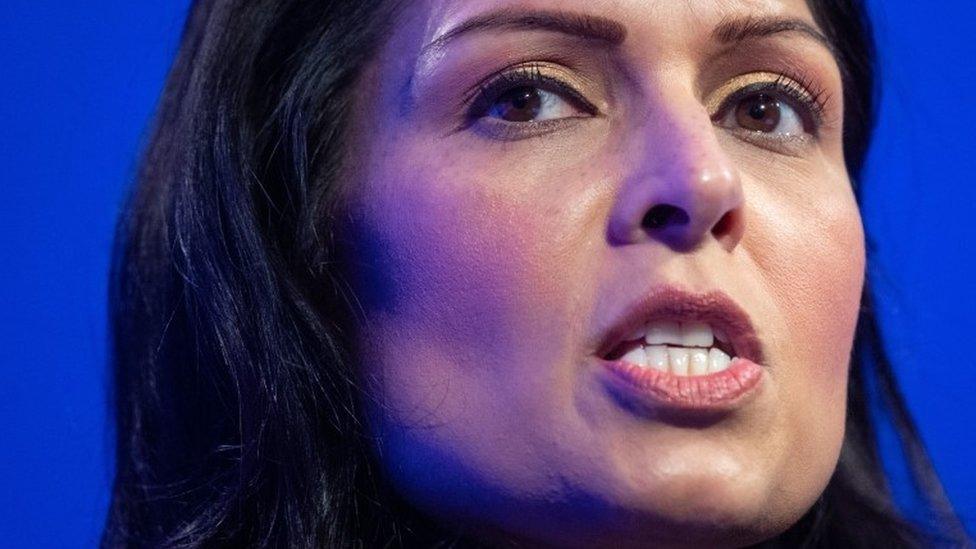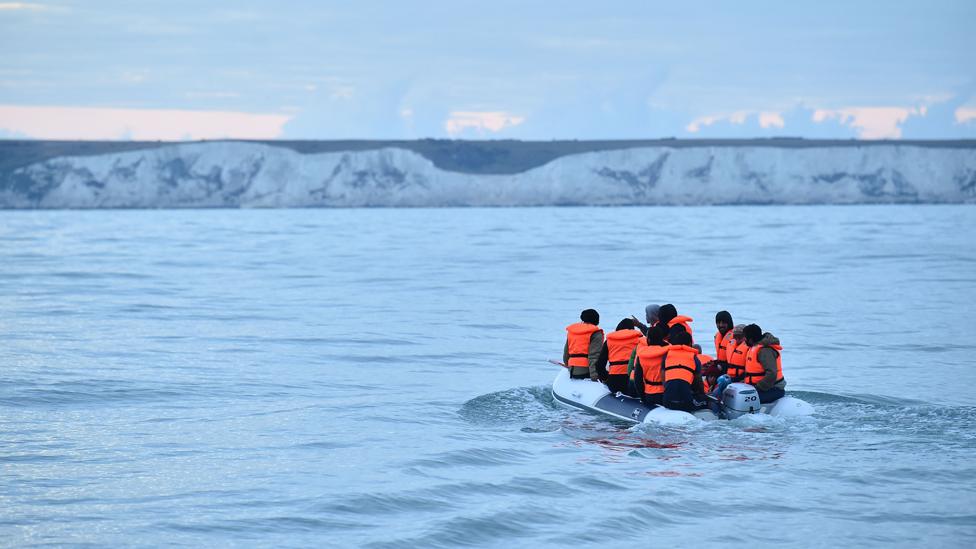Channel crossings: More officers to patrol French beaches
- Published
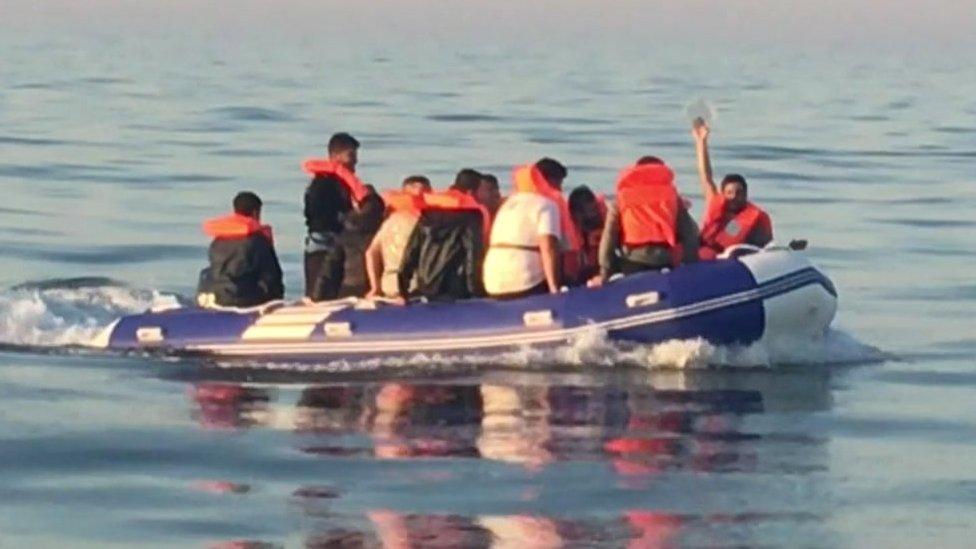
The number of officers patrolling French beaches will double from next week to help stop migrants crossing the Channel, the UK's home secretary has announced.
It is part of further measures Priti Patel agreed in a meeting with her French counterpart on Saturday.
Officers will be aided by "enhanced" surveillance, such as drones and radar, to find smugglers and migrants.
Thousands of migrants have reached the UK in small boats this year.
The Home Office said 59 people on four boats crossed the Channel on Friday.
Ms Patel said that due to increased French patrols and intelligence sharing "we are already seeing fewer migrants leaving French beaches".
"The action we have agreed jointly today goes further, doubling the number of police officers on the ground in France, increasing surveillance and introducing new cutting edge technology, representing a further step forward in our shared mission to make Channel crossings completely unviable," she said.
In announcing the French patrols, the Home Office did not say how many more officers would be deployed.
Ms Patel also said there would be "a new asylum system" that is "firm and fair" and promised there would be new legislation for that next year.
'Massaging the numbers'
But Saturday's announcement was criticised by Bella Sankey, director of humanitarian charity Detention Action.
"It is an extraordinary mark of failure that the home secretary is announcing with such fanfare that she is rearranging the deckchairs on the Titanic," she said.
Patel also promised there would be legislation for a 'new asylum system' that is 'firm and fair' next year
"No amount of massaging the numbers masks her refusal to take the sensible step of creating a safe and legal route to the UK from northern France, thereby preventing crossings and child deaths.
"Instead she throws taxpayers' money away on more of the same measures that stand no chance of having a significant impact on this dangerous state of affairs."
According to figures collated by the BBC about 8,000 migrants in small boats have been taken into the care of Border Force officials, having reached UK shores or been intercepted in the Channel.
That is despite Ms Patel's vow in 2019 to make such journeys an "infrequent phenomenon".

Analysis: Simon Jones, BBC News
There have been a number of deals between Britain and France over the past couple of years to try to bring a halt to these crossings. On each occasion, the two countries pledged to work more closely than ever to tackle the issue.
But the number of migrants reaching the UK has continued to rise. The home secretary has been facing calls, not least from her fellow Conservative MPs, to get a grip of the issue.
Now she's had to put her hands in her pockets to provide more resources for the French. There will now be real pressure on them to deliver results.

In October a Kurdish-Iranian family of five died attempting to cross the Channel. The small boat they were heading to the UK in capsized in rough conditions just a few kilometres into its journey.
There have been nearly 300 border-related deaths in and around the Channel since 1999, according to a recent report by Mael Galisson, from Gisti, a legal service for asylum seekers in France.
At Saturday's meeting, Ms Patel and French Interior Minister Gerald Darmanin also agreed on steps to better support migrants arriving in France to find appropriate accommodation "in order to take them out of the hands of criminal gangs".
They agreed on measures to increase border security at ports in northern and western France to target smugglers and avoid migrant crossings threatening freight traffic.
Co-operation between French and UK law enforcement had already stopped about 1,100 migrants from making the dangerous crossing and led to 140 arrests since July, the Home Office said.
- Published27 November 2020
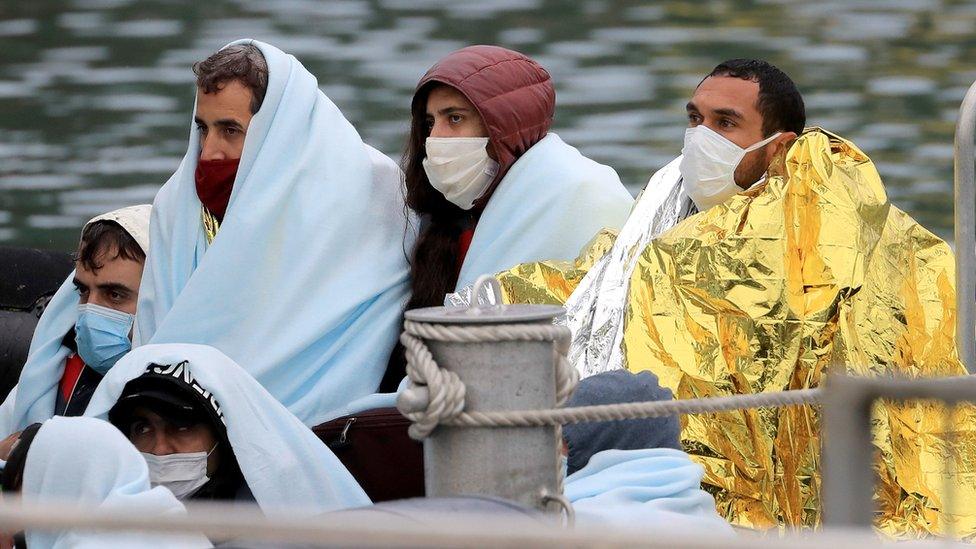
- Published20 August 2020
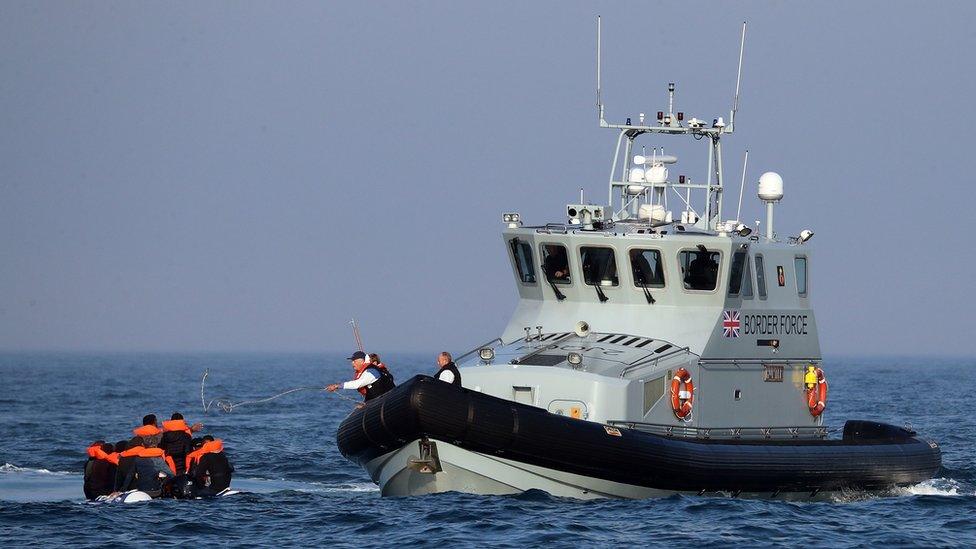
- Published18 April 2020
